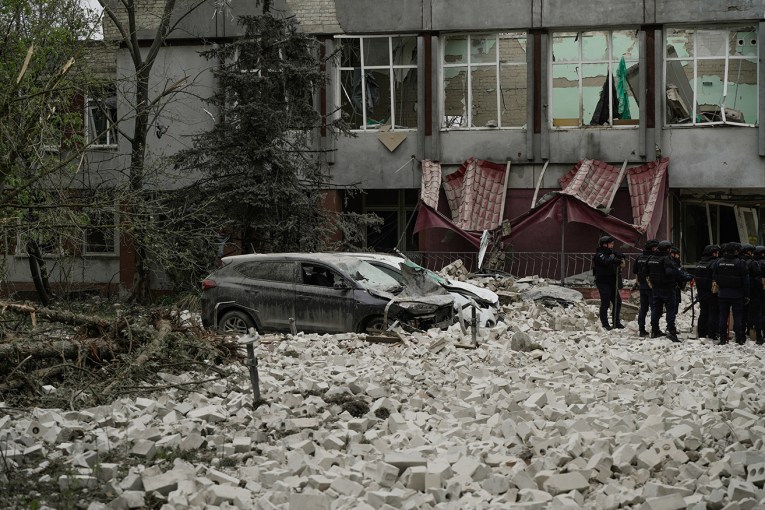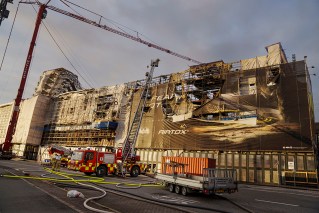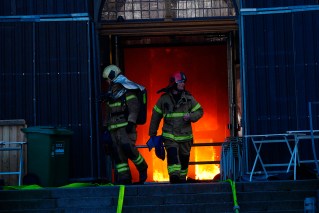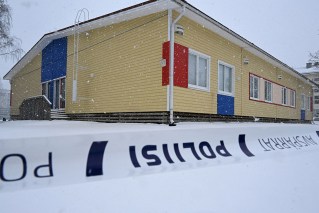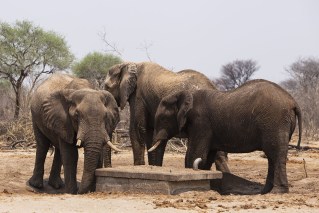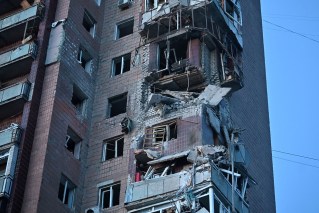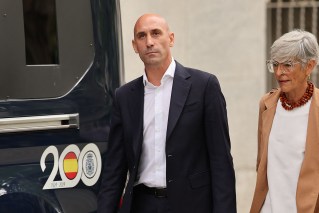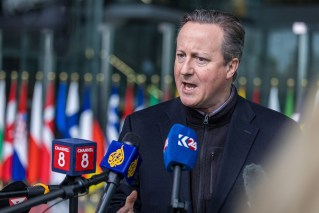Russia accused of ‘genocide’ as Ukraine horrors emerge

Ukrainian President Volodymyr Zelensky has called for an end to Russian “war crimes”, after mass graves were found in the Ukrainian city of Bucha, and dozens of bodies left in the streets.
“The world has already seen many war crimes. At different times. On different continents. But it is time to do everything possible to make the war crimes of the Russian military the last manifestation of such evil on earth,” Mr Zelensky said in a video address on Monday (Australian time).
“This is genocide. I want all the leaders of the Russian Federation to see how their orders are being fulfilled.”
Ukrainian authorities have accused Russia’s departing forces of committing war crimes and leaving behind a “scene from a horror movie” in Bucha, a city on the outskirts of Kyiv.
Bodies with bound hands, close-range gunshot wounds and signs of torture lay scattered in the streets after Russian soldiers withdrew at the weekend.
As images of the bodies – people whom residents said were killed indiscriminately – began to emerge from Bucha, a slew of world leaders condemned the atrocities and called for tougher sanctions against Moscow.
In a sign of how the horrific reports shook many leaders, Germany’s defence minister even suggested that the European Union consider banning Russian gas imports.
British Foreign Secretary Liz Truss accused Russia of committing “appalling acts” in Bucha and Irpin and demanded a war crimes investigation.
“As Russian troops are forced into retreat, we are seeing increasing evidence of appalling acts by the invading forces in towns such as Irpin and Bucha,” Ms Truss said.
British Prime Minister Boris Johnson also condemned the events.
Tweet from @vonderleyen
Tweet from @antonioguterres
Russia’s Defence Ministry said in a statement that the photos and videos of dead bodies “have been stage-managed by the Kyiv regime for the Western media”. It said “not a single civilian has faced any violent action by the Russian military” in Bucha.
Russia has sought a meeting of the UN Security Council to discuss events in Bucha, which it blamed on “Ukrainian provocateurs and their Western patrons”.
Samantha Power, a former US ambassador to the United Nations who is now administrator of the US Agency for International Development, slammed the move, saying it was designed to “feign outrage.”
“Russia is drawing from the playbook it used for Crimea & Aleppo: forced to defend the indefensible (here, the Bucha atrocities), Russia is calling a @UN Security Council meeting, so it can feign outrage & call for accountability,” she tweeted.
“Nobody is buying it.”
Ukraine’s prosecutor-general Iryna Venediktova said so far the bodies of 410 civilians had been found in Kyiv-area towns recently retaken from Russian forces.
Associated Press journalists saw the bodies of at least 21 people in various spots around Bucha, north-west of the capital. One group of nine, all in civilian clothes, was scattered around a site that residents said Russian troops used as a base.
They appeared to have been killed at close range. At least two had their hands tied behind their backs, one was shot in the head, and another’s legs were bound.
Ukrainian officials laid the blame for the killings in Bucha and other Kyiv suburbs squarely at the feet of Russian troops.
Human Rights Watch has also backed up the claims, releasing a report detailing “apparent war crimes” by Russian forces – including evidence of rape and unlawful killings of civilians in the occupied areas of the Chernihiv, Kharkiv and Kyiv regions since February.
There has been heavy fighting in Bucha since Russian troops invaded Ukraine from three directions on February 24.
They left Bucha on March 30 after their advance stalled in the face of resolute defence from Ukraine’s forces. With them gone, residents gave harrowing accounts on Sunday, saying soldiers shot and killed civilians without any apparent reason.
One resident, who refused to give his name out of fear for his safety, said Russian troops went building to building and took people out of the basements where they were hiding, checking their phones for any evidence of anti-Russian activity and taking them away or shooting them.
Hanna Herega, another resident, said the Russians shot at a neighbour who had gone out to gather wood for heating.
“They hit him a bit above the heel, crushing the bone, and he fell down,” Ms Herega said. “Then they shot off his left leg completely, with the boot. Then they shot him all over.”
Oleksiy Arestovych, an adviser to Mr Zelensky, described bodies lying in the streets of the suburbs of Irpin and Hostomel, as well as Bucha, as a “scene from a horror movie”.
He alleged that some of the women found dead had been raped before being killed and the Russians then burned the bodies.
In a video address, Mr Zelensky said Russian soldiers who killed and tortured civilians were responsible for “concentrated evil”.
“It is time to do everything possible to make the war crimes of the Russian military the last manifestation of such evil on earth,” he said in remarks translated by his office.
Mr Zelensky also appeared in a video message at Sunday’s Grammy Awards, contrasting the lives of those attending the award ceremony in Las Vegas with the lives of musicians in his battered homeland.
“Our musicians wear body armour instead of tuxedos. They sing to the wounded in hospitals, even to those who can’t hear them,” he said.
“But the music will break through anyway.”
Moscow has now said it will focus its offensive on Ukraine’s east. But it also pressed a siege on a city in the north and continued to strike cities elsewhere in a war that has left thousands dead and forced more than four million Ukrainians to flee their country.
-with AAP
